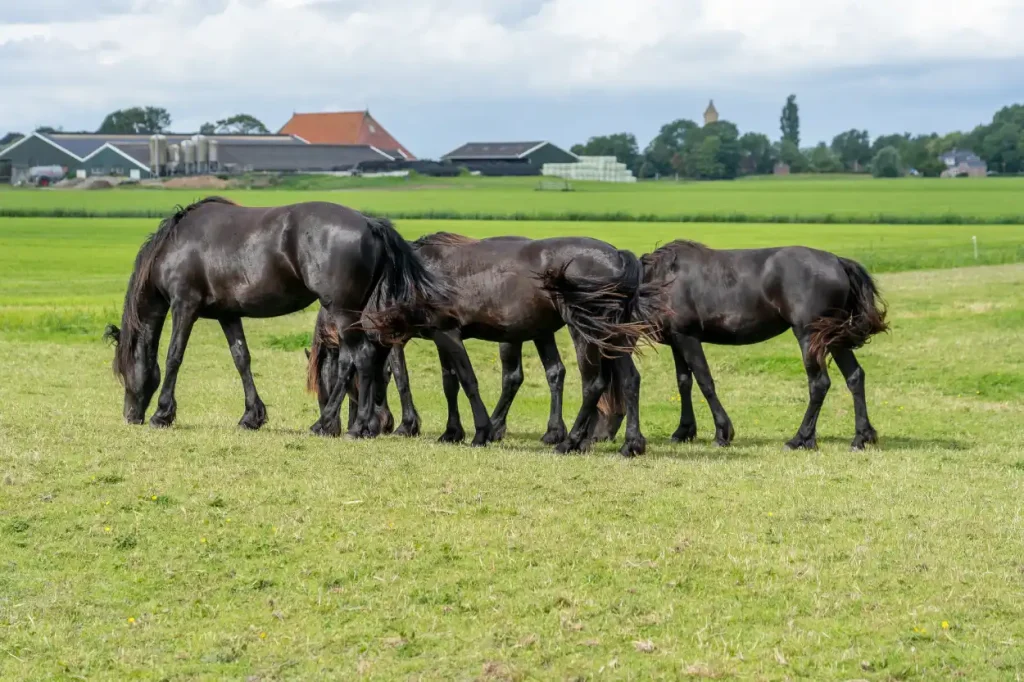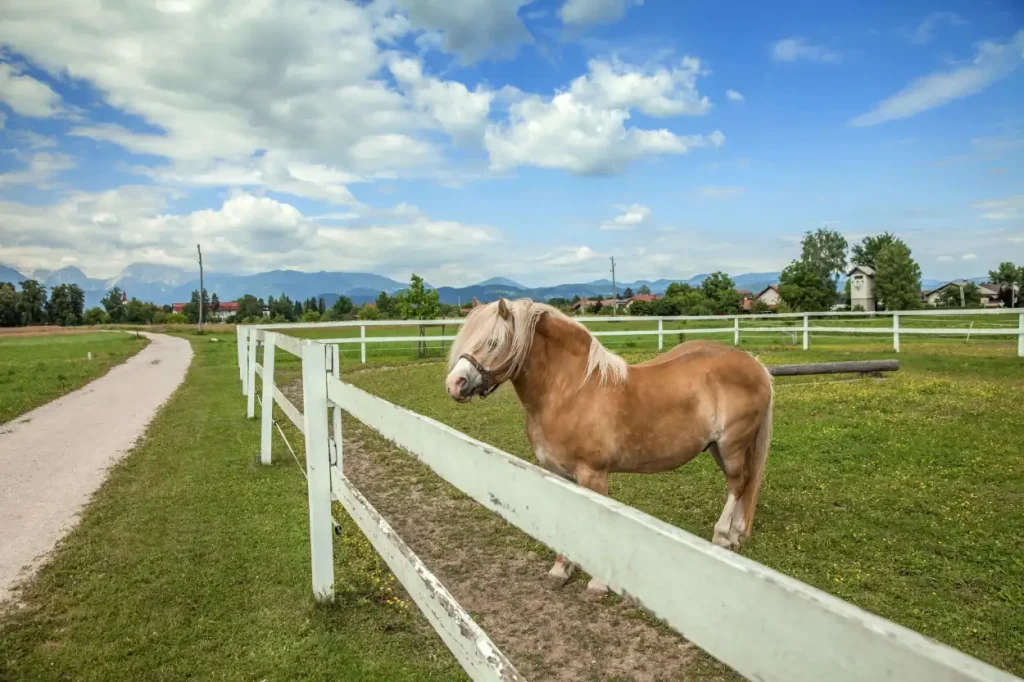
Owning and operating a horse farm is a dream for many equestrian enthusiasts. It’s a lifestyle that combines the tranquility of rural living with the joy of daily interactions with horses. However, this dream comes with its own set of challenges, requiring careful planning, significant financial investment, and a deep commitment to the well-being of the animals.
This guide will walk you through the essential steps of buying, owning, and running a successful horse farm. From understanding the initial costs and necessary infrastructure to tips on managing pastures and ensuring horse health, you’ll find everything you need to turn your equestrian dream into reality.
Is It Worth Owning a Horse Farm?
Owning a horse farm can be incredibly rewarding for those passionate about equestrian activities. It offers the joy of daily interactions with horses, opportunities for breeding and training, and potential income from boarding or lessons. However, it’s also demanding, requiring significant time, labor, and financial investment for maintenance, feed, and healthcare. Consider your commitment level, financial resources, and long-term goals before deciding. If these align, owning a farm can be a fulfilling venture.
How to Buy a Horse Farm
Buying a horse farm can be a dream come true for equestrian enthusiasts, offering a perfect blend of rural living and horse care. However, careful planning and consideration are required to ensure the investment meets your needs and expectations. Here’s a concise guide:
1. Determine Your Needs and Budget
Assess what type of Colorado horse farm suits your needs, considering factors like size, facilities, and location. Establish a budget, factoring in initial purchases, renovations, and ongoing maintenance costs.
2. Research and Visit Properties
Look for properties that match your criteria. Visit potential farms to evaluate their condition, amenities, and suitability for your intended use.
3. Check Zoning and Regulations
Ensure the property complies with local zoning laws and regulations related to agricultural use and horsekeeping.
4. Hire Professionals
Work with a real estate agent experienced in agricultural properties, a lawyer for legal guidance, and a veterinarian to inspect the facilities.
5. Evaluate Infrastructure
Examine barns, paddocks, fencing, water supply, and pasture quality. Consider the proximity to veterinary services, feed suppliers, and riding trails.
6. Negotiate and Purchase
Make an offer based on your budget and property evaluation. Negotiate terms, and once agreed, proceed with a thorough property inspection before finalizing the purchase.
Tips to Operate Your Dream Horse Farm in Colorado

There are several key tips to successfully operate your dream horse farm in Colorado. From understanding the climate to managing the horses and property efficiently, these tips will help ensure a thriving and enjoyable farm operation.
1. Understand Colorado’s Climate
Colorado’s climate can be quite variable, with hot summers and cold winters. Ensure you have appropriate shelter and blankets for your horses during extreme weather. Implement proper drainage systems to manage snowmelt and rainfall. Regularly check weather forecasts to prepare for sudden changes, and consider installing a windbreak to protect your horses and structures from high winds.
2. Invest in Quality Fencing
Good fencing is essential for keeping your horses safe and secure. Choose durable materials like wood, vinyl, or electric tape that can withstand Colorado’s weather conditions. Regularly inspect and maintain your fences to prevent escapes and injuries. Ensure that the fencing height is appropriate for your horse breed and that gates are securely latched. Proper fencing not only protects your horses but also helps in managing pasture rotation efficiently.
3. Manage Pasture and Forage
Healthy pastures are vital for your horses’ diet and overall well-being. Rotate pastures to prevent overgrazing and allow grass to recover. Conduct soil tests to determine nutrient needs and apply fertilizers accordingly. Control weeds and reseed bare patches to maintain lush, nutritious forage. Adequate pasture management not only supports horse health but also reduces feed costs, ensuring sustainable farm operations.
4. Ensure Proper Nutrition and Health Care
Provide your horses with a balanced diet tailored to their age, workload, and health status. Consult with a veterinarian or equine nutritionist to develop a feeding plan. Regularly deworm and vaccinate your horses, and schedule routine dental check-ups. Keep a first aid kit on hand and establish a relationship with a local veterinarian for emergencies. Proper nutrition and health care are vital for maintaining your horses’ performance and longevity.
5. Implement Efficient Manure Management
Proper manure management is essential for maintaining a clean and healthy environment. Establish a composting system to recycle manure into nutrient-rich fertilizer for your pastures. Regularly remove manure from stalls and paddocks to prevent fly infestations and reduce odor. Consider investing in equipment like a manure spreader to streamline the process. Efficient manure management improves pasture quality and supports sustainable farming practices.
6. Stay Informed and Network
Join local equine associations and attend workshops to stay updated on best practices and industry trends. Network with other farm owners to share experiences and advice. Participate in community events and horse shows to promote your farm and build relationships. Continuing education and networking help you stay informed about new techniques, technologies, and opportunities in the equine industry, ensuring your farm’s success and growth.
Frequently Asked Questions
What are the initial costs involved in starting a farm?
The initial costs of starting a farm include purchasing the property, renovating existing structures, building new facilities like barns and paddocks, and installing fencing. Additionally, you’ll need to budget for essential equipment, initial feed and bedding, and possibly hiring staff. It’s crucial to have a comprehensive financial plan to cover these expenses and ensure a smooth start.
How can I generate income from my farm?
There are various ways to generate income from a farm, including boarding horses for others, offering riding lessons, breeding and selling horses and hosting equestrian events. Some farms also diversify by offering agri-tourism activities, such as farm tours, horseback riding experiences, and leasing the property for special events.
How do I choose the right breed of horse for my farm?
Choosing the right breed depends on your farm’s focus and your personal preferences. Consider the purpose of your farm, whether it’s for breeding, training, riding lessons, or competitive sports. Research breeds known for their suitability to your intended use and consult with breeders or equine professionals to make an informed decision. Factors like temperament, size, and maintenance requirements should also be considered.
Conclusion
Owning and operating a horse farm is a rewarding endeavor that requires careful planning, dedication, and a deep love for horses. By understanding the costs, infrastructure needs, and daily management tips, you can turn your equestrian dream into a successful reality. Take the plunge and start your journey today!
If you’re looking to buy land for your horse farm, contact us at 3D Real Estate, a commercial real estate broker in Littleton, CO, for expert assistance and guidance in finding the perfect property.




